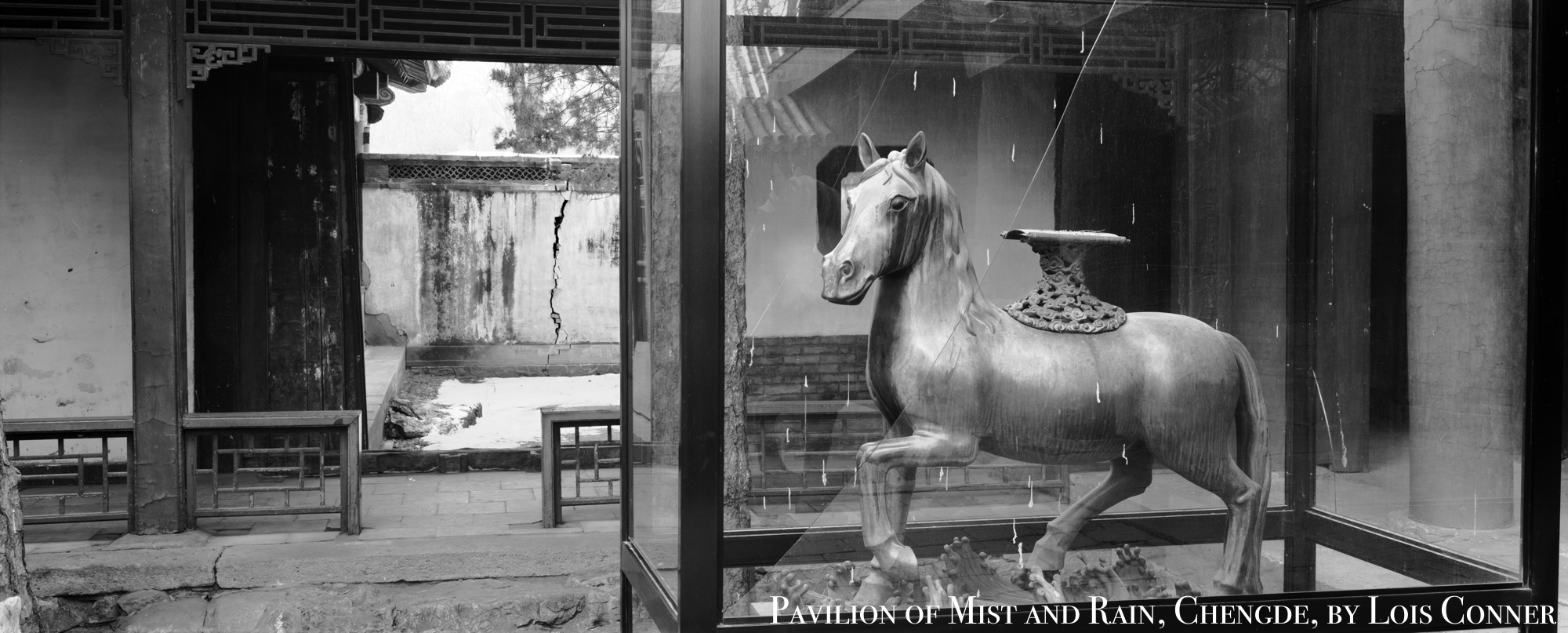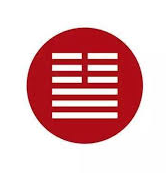The Ninth Day of the First Month 正月初九 of the Lunar New Year follows on from the Establishment of Spring 立春. It is regarded as a time when life returns to the myriad things 萬象回春. The number Nine 九 is associated with good fortune and, since ancient times, it has been regarded as the preeminent auspicious number. It also indicates the unbroken Yang 陽 used in prognostication; it is what some call the ‘senior male digit’. As such it signifies new beginnings 一陽初始.
The First Month is governed by Hexagram XI, Tai 泰, in The Book of Change 易經, the classical Chinese oracle. The Hexagram consists of the two Trigrams: Earth 坤 above Heaven 乾. The Judgement of the oracle reads:
泰
Tai
Grandeur
The Small
Depart,
The Great
Arrive.
This is Auspicious.
Fortune.
小往
大來
吉亨
The unbroken or Yang line in the first place (the bottom line) of the hexagram represents growth from beneath the soil, from which the other lines are stirred into life.
— see John Minford, The Book of Change, 2014, p.108ff.
In popular Taoism the Ninth Day of the Lunar New Year also marks the Birthday of the Jade Emperor 玉皇上帝萬壽.
In the early Chinese tradition, as David Hawkes points out, the word Nine 九 often just meant ‘many’, ‘several’ or ‘various’. In The Songs of the South 楚辭, an anthology of ancient poems by Qu Yuan 屈原 and others, translated by Hawkes, for instance, many titles include the word Nine even though there are often more than nine poems in each section (such as, Nine Songs 九歌; Nine Pieces 九章; Nine Changes 九變; Nine Regrets 九懷; Nine Laments 九嘆; and, Nine Longings 九思). The dark classic, Sunzi’s Art of War even devotes a chapter to 九地, The Nine Kinds of Ground (according to John Minford) or The Nine Situations (in Lionel Giles’ translation).
In his encyclopaedic Chinese History, A New Manual (4th edition, 2015, pp.485-486), Endymion Wilkinson notes the many associations of the word Nine, one with positive connotations partially because it is a homophone with 久, ‘eternal’:
One of the oldest names for China is the Nine Regions (Jiuzhou 九州). By the Qing, China had grown enormously and was divided therefore into 18 provinces (2 x 9). The nine caldrons (jiuding 九鼎) became the symbol of the ruler and of legitimate success during the Zhou dynasty. From 220 CE, the bureaucracy was divided into nine ranks (jiupin 九品)…
Belief in the powers of nine even influenced the editing of ancient texts, for example, the Laozi 老子 was edited in the Han into 81 juan and bother parts of the Huangdi neijing 黃帝內經 were composed of 81 juan (9 x 9).
Even the art of calligraphy and the basis of Chinese writing depends on Nine: children and students would practice writing characters in squares subdivided into nine sections, or 九宫格. Below we feature a contemporary work made to illustrate a popular list known as ‘The Nine Desiderata of Ageing’ 人生九老. The list contains a play on the words 老 lǎo ‘old age, constantly, always’ and 要 yào ‘to want, should, ought to’.
It is followed by other other lists, mostly in Chinese, that feature the numeral 9, provided here for the causal amusement of our readers. In the context of the number 9 we also mention the Seven Sages of the Bamboo Grove and this account concludes with the Nine Worthies of the Tang and the poet Bo Juyi.
— The Editor, Ninth Day of the First Month of the Dingyou Year 2017 丁酉正月初九
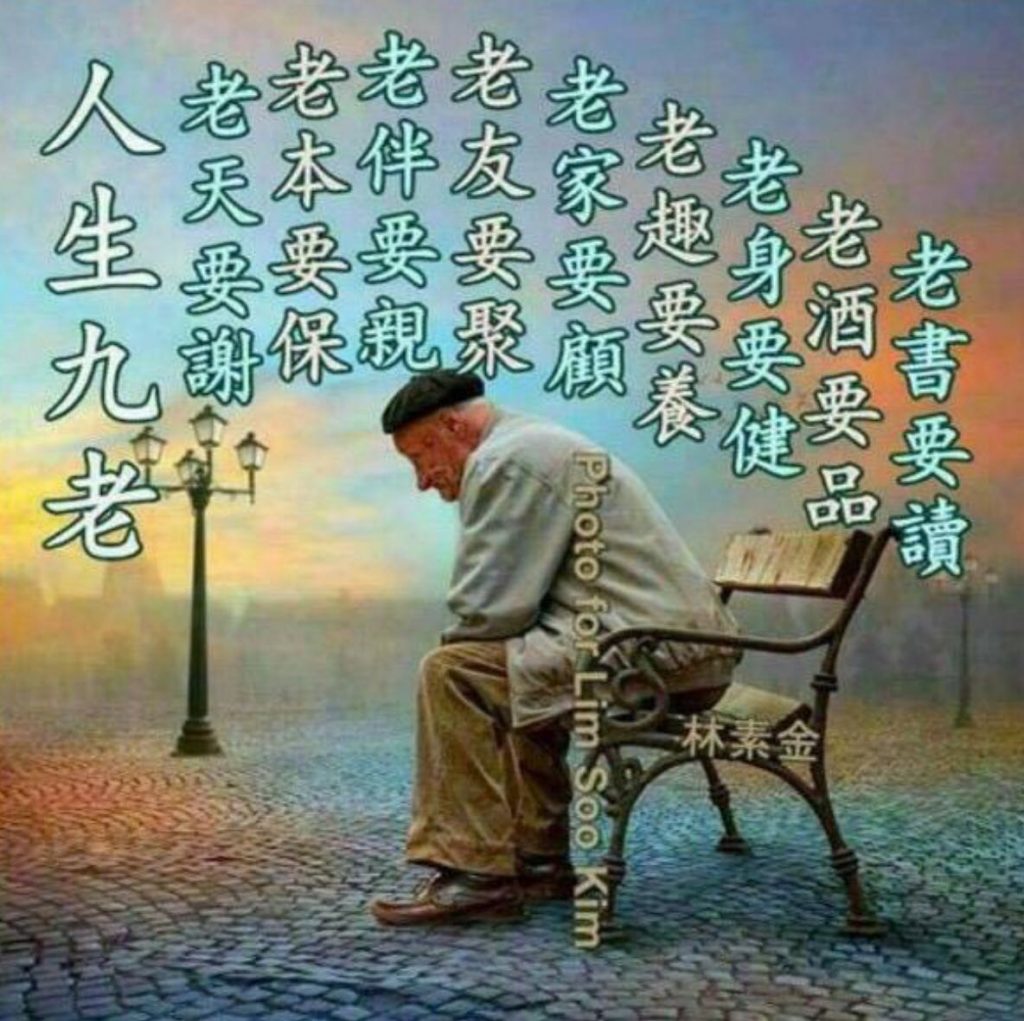
Simply translated the list reads:
You should be grateful to life; you should shepherd your resources; you should be close to your partner; you should meet up with your friends; you should care for your hometown; you should nurture your interests; you should keep healthy; you should savour your liquor; you should (re-)read favourite books.
Numbered lists been a constant feature of Chinese culture. Various lists about the quality of life, or in invocations about how to deal with the vicissitudes of existence use the number 9, a digit often thought to be auspicious.
Nine Things Essential for a Refined Existence
人生九雅
琴
弦底松風訴古今,紅塵裡,難覓一知音。
棋
顛倒蒼生亦是奇,黑白子,何必論高低。
書
沉醉東風月下讀,柴門閉,莫管客來無。
畫
纖手松煙染素紗,盈盈寫,茅舍兩三家。
詩
漱玉含芳錦繡辭,堪吟詠,佳句費尋思。
酒
與爾同銷萬古愁,杯斟滿,莫教淚空流。
花
驛外橋邊萼綠華,隨風起,飄舞向天涯。
茶
香喉提氣人神閑,捏指間,悠然沁心田。
玉
玲瓏透剔純貴雅,載萬道,滋神潤心扉。
These are: the lute; Chinese chess; books; paintings; poetry; wine; flowers; tea; and, jade.
Xi Kang’s Nine Objections
In On Heritage 遺, an essay that offers the rationale for China Heritage, we refer to Xi Kang 嵇康, one of the Seven Sages of the Bamboo Grove 竹林七賢 of the fourth century. When turning down the offer of an offical position Xi gave nine reasons why he was unsuited to a bureaucratic career. He called these Nine Objections ‘seven things I could never stand and two things which would never be condoned’ 有必不堪者七,甚不可者二:
- I am fond of lying late abed, and the herald at my door would not leave me in peace: this is the first thing I could not stand. 臥喜晚起,而當關呼之不置,一不堪也。
- I like to walk, singing, with my lute in my arms, or go fowling or fishing in the woods. But surrounded by subordinates, I would be unable to move freely—this is the second thing I could not stand. 抱琴行吟,弋釣草野,而吏卒守之,不得妄動,二不堪也。
- When I kneel for a while I become as though paralyzed and unable to move. Being infested with lice, I am always scratching. To have to bow and kowtow to my superiors while dressed up in formal clothes—this is the third thing I could not stand. 危坐一時,痺不得搖,性復多蝨把搔無已,而當裹以章服,揖拜上官,三不堪也。
- I have never been a facile calligrapher and do not like to write letters. Business matters would pile up on my table and fill my desk. To fail to answer would be bad manners and a violation of duty, but I would not long be able to force myself to do it. This is the fourth thing I could not stand. 素不便書,又不喜作書,而人間多事,堆案盈機,不相酬答,則犯教傷義,欲自勉強,則不能久,四不堪也。
- I do not like funerals and mourning, but these are things people consider important. Far from forgiving my offence, their resentment would reach the point where they would like to see me injured. Although in alarm I might make the effort, I still could not change my nature. If I were to bend my mind to the expectations of the crowd, it would be dissembling and dishonest, and even so I would not be sure to go unblamed—this is the fifth thing I could not stand. 不喜弔喪,而人道以此為重,己為未見恕者所怨,至欲見中傷者,雖瞿然自責,然性不可化,欲降心順俗,則詭故不情,亦終不能獲無咎無譽如此,五不堪也。
- I do not care for the crowd and yet I would have to serve together with such people. Or on occasions when guests fill the table and their clamor deafens the ears, their noise and dirt contaminating the place, before my very eyes they would indulge in their double-dealings. This is the sixth thing I could not stand. 不喜俗人,而當與之共事,或賓客盈坐,鳴聲聒耳,囂塵臭處,千變百伎,在人目前,六不堪也。
- My heart cannot bear trouble, and official life is full of it. One’s mind is bound with a thousand cares, one’s thoughts are involved with worldly affairs. This is the seventh thing I could not stand. 心不耐煩,而官事鞅掌,機務纏其心,世故繁其慮,七不堪也。
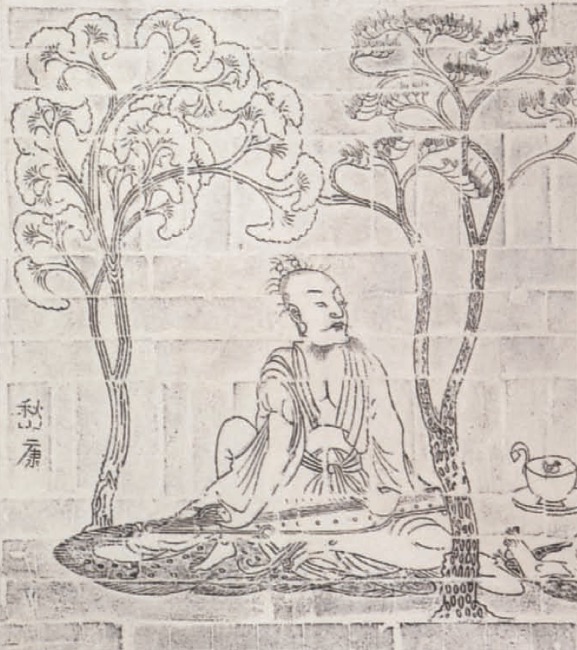
‘Further’, Xi Kang continued, there were two reasons why his views and behaviour would not be tolerated:
- I am always finding fault with Tang and Wu Wang, or running down the Duke of Zhou and Confucius. If I did not stop this in society, it is clear that the religion of the times would not put up with me. This is the first thing which would never be condoned. 又每非湯武而薄周孔,在人間不止,此事會顯世教所不容,此甚不可一也。
- I am quite ruthless in my hatred of evil, and speak out without hesitation, whenever I have the occasion. This is the second thing which would never be condoned. 剛腸疾惡,輕肆直言,遇事便發,此甚不可二也。
— from On Heritage 遺.
The Nine ‘Vital Airs’ 氣 of a Good Life
人生九氣
閑時多讀書,博覽凝才氣。
眾前慎言行,低調養清氣。
交友重情義,慷慨有人氣。
困中善負重,忍辱蓄志氣。
處事宜平易,不爭添和氣。
對己講原則,堅持守底氣。
淡薄且致遠,修身立正氣。
居低少卑怯,坦然見骨氣。
卓而能合群,品高養浩氣。
Note: there are also Nine Vital Airs or pneuma 九氣 identified in Traditional Chinese Medicine.
The Nine Situations of Life (and ideal responses)
人生九局
1. 寵辱之局:寵辱不驚。
2. 得失之局:有小失才能有大得。
3. 利害之局:見利必先思害。
4. 禍福之局:福禍相倚。
5. 貧富之局:貧而有志,富而不驕。
6. 貴賤之局:貴賤皆人定。
7. 苦樂之局:苦樂兩相依。
8. 生死之局:明生死,重大義。
9. 成敗之局:勝不驕,敗不餒。
The Nine Superior Qualities
人生九品
下三品
自信,自信能成就一切但不傲慢;
謙虛,自知要學無止境但不自卑;
認錯,自省有缺點缺陷知錯能改。
中三品
感恩,感恩得到的一切;
知足,滿足享受的一切;
無為,安住現成的一切。
上三品
舍得,給予大眾分享所得;
包容,容納自他一切生命;
覺醒,覺悟宇宙人生真相。
The Nine Realisations
人生九悟
- 心甘情願吃虧的人,終究吃不了虧。能吃虧的人,人緣必然好,人緣好的人,機會自然多。人的一生,能抓住一兩次機會,足矣!
- 愛占便宜的人,終究占不了便宜,撿到一棵草,失去一片森林。你看那些一到買單就上廁所或錢包半天掏不出來的聰明人,基本上都沒啥成就。
- 心眼小的人,天地大不了。朋友聚會時,三句話不離自己和自家的人,是蝸牛轉世,內心空虛、自私。心裡只有自家的事,其他的事慢慢也就與他無關。
- 只有惜緣才能續緣。在人生的路上,我們會遇到很多人,其實有緣才能相聚,親人多半是前世的好友,好友多半是前世的親人,給你帶來煩惱的,多半是你前世傷害過的。因此切記:善待身邊的親人,關心身邊的朋友,寬恕那些傷害你的人。這就是因果。
- 心中無缺叫富,被人需要叫貴。快樂不是一種性格,而是一種能力。
- 解決煩惱的最佳辦法,就是忘掉煩惱。
- 笑看風雲淡,坐對雲起時。不爭就是慈悲,不辯就是智慧,不聞就是清淨,不看就是自在,原諒就是解脫,知足就是放下。
- 不亂於心,不困於情,不畏將來,不念過往。
- 今生註定我們甚麼也帶不走,那就活在當下、笑在當下、悟在當下吧!
The Nine-word Mantra
奧義九字真言
(also known as the kuji kiri 九字切 in Japanese, a nine-word mantra for dispelling demons)
九字真言,又稱九字法。系由 ‘臨兵鬥者,皆陣列前行’ [literally, ‘Soldiers arrayed to fight, line up before me’] 九字所成之咒術。典出《抱樸子 · 內篇卷十七 · 登涉》第五段:入名山,以甲子開除日,以五色繒各五寸,懸大石上,所求必得。又曰,入山宜知六甲秘祝。祝曰,臨兵鬥者,皆數組前行。凡九字,常當密祝之,無所不辟。要道不煩,此之謂也。六甲秘祝為中國文化,為中國道家與兵家所盛行的秘術。傳入日本後,混入真言密教之一部,並被誤抄為: 臨、兵、鬥、者、皆、陣、列、在、前,而成為日本修驗道之山伏所重視的咒法。
The Nine Worthies of the Tang
九老會
A group of nine poets over the age of seventy met at Fragrant Mountain Temple near Longmen outside the city of Luoyang in the Tang dynasty (late ninth century). It is said that they were disaffected from the politics of the day and sought solace in poetry, wine and conversation. Of their number the most famous is the poet Bo Juyi 白居易, who spent his last years at the temple was known also by his late literary name 號, Hermit of Fragrant Mountain 香山居士. The gathering of The Nine Worthies is commemorated in numerous paintings. This group is often associated with the Seven Sages of the Bamboo Grove (mentioned above) who feature elsewhere in China Heritage.
The Nine Worthies are: 胡杲、吉玫、劉貞、鄭據、盧貞、張渾、白居易、李元爽、如滿. In Chinese they are also known as 香山九老、洛中九老、會昌九老.
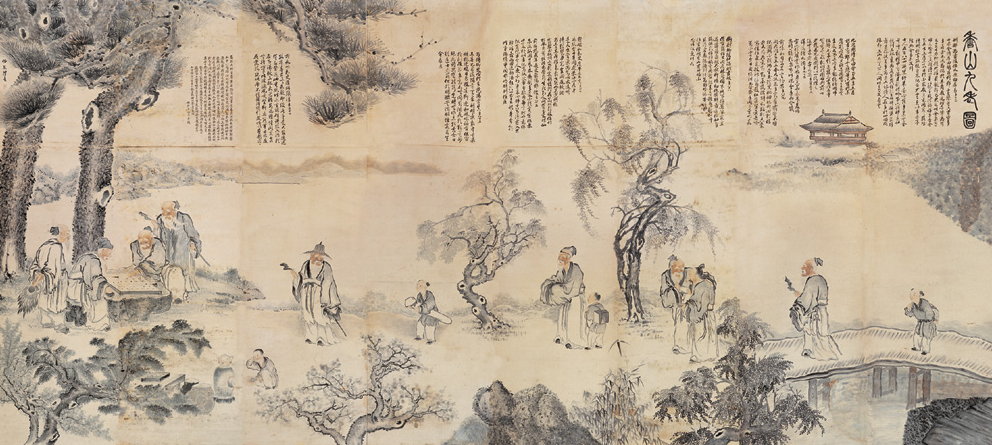
Old Age 詠老贈夢得
Bo Juyi 白居易
Addressed to Liu Yuxi 劉禹錫 (字夢得, 772-842), who was born in the same year.
We are growing old together, you and I,
Let us talk ourselves, what is age like?
The dull eye is closed ere night comes;
Propped on a staff, sometimes a walk abroad;
Or all day sitting with closed doors.
One dares not look in the mirror’s polished face;
One cannot read small-letter books.
Deeper and deeper, one’s love of old friends;
Fewer and fewer, one’s dealings with young men.
One thing only, the pleasure of idle talk,
Is as great as ever, when you and I meet.
與君均老矣,自問老何如?
眼澀夜先臥,頭慵朝未梳。
有時扶杖出,盡日閉門居,
懶照新磨鏡,休看小字書。
情於故人重,跡共少年疏,
唯是閒談興,相逢尚有餘。
— trans. Arthur Waley, 1919.

